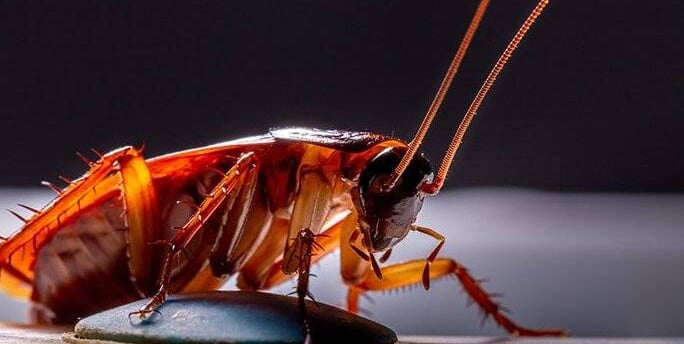What Do Cockroaches Hate?
Discover what cockroaches hate! Master DIY techniques, understand roach behavior, and equip yourself with tools for a cockroach-free home. Start protecting your space now!
PEST CONTROL TIPS


Cockroaches - the mere mention of the word can send shivers down your spine. If you've ever flipped on the kitchen lights to see one (or more) of these creatures darting for cover, you know how unsettling they can be. But have you ever wondered, what do cockroaches hate? In this comprehensive guide, we'll delve into the things that roaches detest and how you can use this knowledge to keep them out of your home.
Contents:
Understanding the Cockroach: An Overview
The Basics: What Do Cockroaches Hate?
Cockroach Behavior: A Closer Look
Tools and Techniques: Banishing Roaches from Your Home
Prevention and Maintenance: Tips for a Roach-Free Residence
The Wrap Up: A Cockroach-Hating Conclusion
Understanding the Cockroach: An Overview
Roaches are, undeniably, resilient creatures. These creepy-crawlies have been around for over 300 million years, adapting to various environmental changes and thriving in many habitats across the globe. This adaptability and survivability make them one of the most challenging household pests to control.
But every superhero has a kryptonite, and even cockroaches have their dislikes. To create an effective, do-it-yourself cockroach deterrent strategy, you need to understand these distastes and the behaviors that drive these creatures.
The Basics: What Do Cockroaches Hate?
Essential Oils and Strong Smells
Many homeowners have noted that strong smells, particularly from essential oils like citrus, peppermint, and eucalyptus, can repel cockroaches. These scents interfere with the roaches' ability to detect their pheromone trails—a crucial element for communication and locating food sources.
Bright Lights
Cockroaches are nocturnal insects that despise light. They spend their days hiding in dark, secluded spaces, emerging only at night to forage. The sudden exposure to light can disorient them, sending them scurrying for cover.
Cold Temperatures
Cockroaches favor warm, humid environments, mirroring their tropical origins. Cold temperatures slow their metabolism and breeding cycles, making chilly environments less hospitable for these pests.
Cockroach Behavior: A Closer Look
Understanding cockroach behavior can give you an edge in your mission to rid your home of these pests. Let's break down some essential aspects of their habits:
Cockroaches' Dietary Preferences
Roaches are omnivorous scavengers with a remarkably unselective palate. From leftover food crumbs and unsealed containers to garbage and decaying matter, cockroaches will consume nearly any organic substance. This dietary flexibility makes the average home a potential banquet for these pests.
Their Love for Clutter
Cockroaches prefer tight, dark spaces where they can touch multiple surfaces simultaneously—a behavior known as thigmotaxis. A cluttered home provides these creatures with plenty of hiding places, where they feel secure and less likely to be disturbed.
Tools and Techniques: Banishing Roaches from Your Home
Armed with an understanding of what cockroaches hate and their behavior, we can now explore tools and techniques to keep these critters at bay.
Essential Oil Sprays
Leverage the roach-repelling properties of essential oils by creating DIY sprays. A mixture of water and a few drops of peppermint, eucalyptus, or citrus oil can make a potent repellent. Spray this mixture around areas where you've seen roaches or suspect they might be lurking.
Diatomaceous Earth
Diatomaceous earth (DE) is a powder made from tiny, fossilized aquatic organisms called diatoms. The microscopic sharp edges of DE can penetrate the roach's exoskeleton, causing them to dehydrate and die. Sprinkling DE around potential entry points and hiding spots can provide an effective line of defense against roaches.
Boric Acid Traps
Boric acid has long been recognized as a roach killer. It's typically mixed with a food attractant to create a bait. When roaches walk through the powder, the boric acid adheres to their bodies, and they ingest it when grooming. While effective, it's essential to remember that boric acid can be harmful to humans and pets if ingested or inhaled, so use it cautiously.
Prevention and Maintenance: Tips for a Roach-Free Residence
Beyond knowing what cockroaches hate and how to use that information, maintaining a roach-unfriendly home environment is crucial.
Embrace Cleanliness
Regular cleaning—especially in the kitchen and bathroom—can help deter roaches. Cockroaches are attracted to food remnants, grease, and standing water, so keep your kitchen appliances clean, store food in sealed containers, and promptly fix any water leaks.
Seal Off Entry Points
Small cracks, holes, or gaps in doors, windows, and walls can serve as entry points for roaches. Regularly inspect your home for these potential entryways and seal them off.
Declutter Regularly
A tidy home offers fewer hiding spots for roaches. Regularly sort through and dispose of unnecessary items, especially piles of paper, cardboard boxes, or old clothes.
The Wrap Up: A Cockroach-Hating Conclusion
While cockroaches are resilient pests, understanding what they hate can empower you to create a living environment that's inhospitable to them. Implement the right tools, ensure your home remains clean and organized, and you can rest easy knowing you're doing your best to live a roach-free life.
Keep in mind that roaches can infest even the cleanest homes. Regular inspections, immediate action at the first sign of an infestation, and a good understanding of what cockroaches hate are essential to keep these stubborn pests at bay.
Remember, when it comes to dealing with cockroaches, knowledge is power. Stay informed, stay vigilant, and embrace the practices that make your home a place roaches hate to be!
